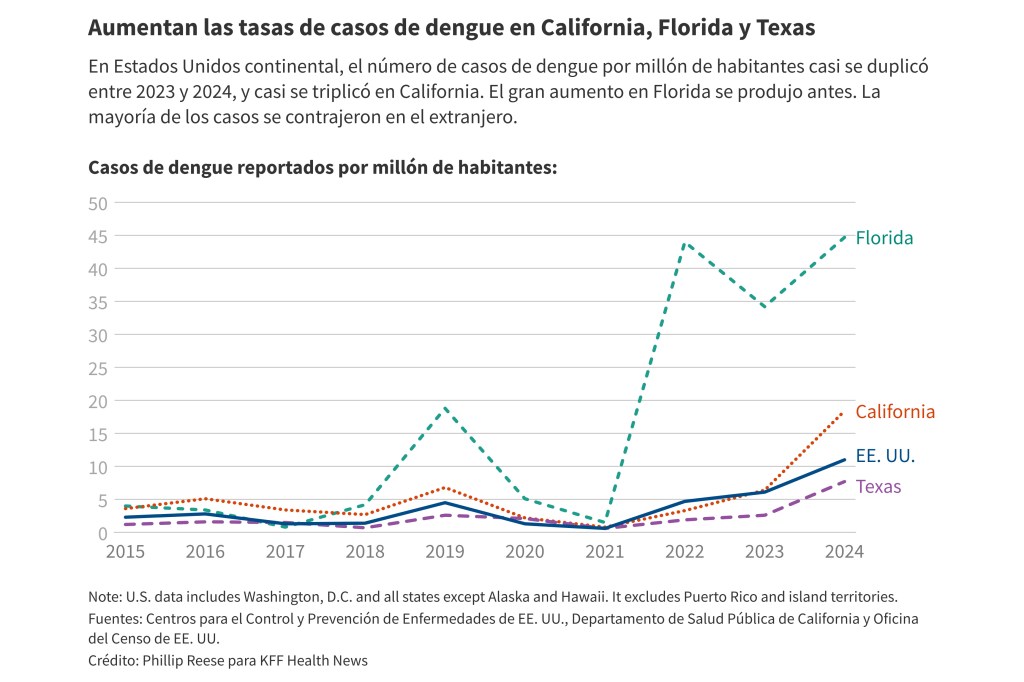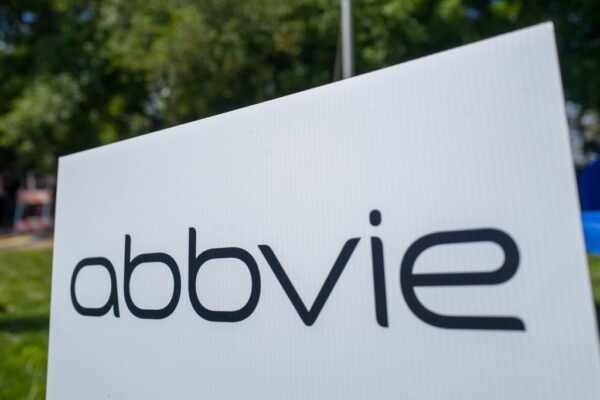The Trump administration has declared that it will aggressively combat chronic disease in America.
Yet in its feverish purge of federal health programs, it has proposed eliminating the National Center for Chronic Disease Prevention and Health Promotion and its annual funding of $1.4 billion.
That’s one of many disconnects between what the administration says about health — notably, in the “MAHA Report” that President Donald Trump recently presented at the White House — and what it’s actually doing, scientists and public health advocates say.
Among other contradictions:
- The report says more research is needed on health-related topics such as chronic diseases and the cumulative effects of chemicals in the environment. But the Trump administration’s mass cancellation of federal research grants to scientists at universities, including Harvard, has derailed studies on those subjects.
- The report denounces industry-funded research on chemicals and health as widespread and unreliable. But the administration is seeking to cut government funding that could serve as a counterweight.
- The report calls for “fearless gold-standard science.” But the administration has sowed widespread fear in the scientific world that it is out to stifle or skew research that challenges its desired conclusions.
“There are many inconsistencies between rhetoric and action,” said Alonzo Plough, chief science officer at the Robert Wood Johnson Foundation, a philanthropy focused on health.
The report, a cornerstone of President Donald Trump’s “Make America Healthy Again” agenda, was issued by a commission that includes Secretary of Health and Human Services Robert F. Kennedy Jr. and other top administration officials.
News organizations found that it footnoted nonexistent sources and contained signs that it was produced with help from artificial intelligence. White House Press Secretary Karoline Leavitt described the problems as “formatting issues,” and the administration revised the report.
Trump ordered the report to assess causes of a “childhood chronic disease crisis.” His commission is now working on a plan of action.
Spokespeople for the White House and Department of Health and Human Services did not respond to questions for this article.
Studies Derailed
The MAHA report says environmental chemicals may pose risks to children’s health. Citing the National Institutes of Health, it said there’s a “need for continued studies from the public and private sectors, especially the NIH, to better understand the cumulative load of multiple exposures and how it may impact children’s health.”
Meanwhile, the administration has cut funding for related studies.
For example, in 2020 the Environmental Protection Agency asked scientists to propose ways of researching children’s exposure to chemicals from soil and dust. It said that, for kids ages 6 months to 6 years, ingesting particulates — by putting their hands on the ground or floor then in their mouths — could be a significant means of exposure to contaminants such as herbicides, pesticides, and a group of chemicals known as PFAS.
One of the grants — for almost $1.4 million over several years — went to a team of scientists at Johns Hopkins University and the University of California-San Francisco. Researchers gained permission to collect samples from people’s homes, including dust and diapers.
But, beyond a small test run, they didn’t get to analyze the urine and stool samples because the grant was terminated this spring, said study leader Keeve Nachman, a professor of environmental health and engineering at Hopkins.
“The objectives of the award are no longer consistent with EPA funding priorities,” the agency said in a May 10 termination notice.
Another EPA solicitation from 2020 addressed many of the issues the MAHA report highlighted: cumulative exposures to chemicals and developmental problems such as attention-deficit/hyperactivity disorder, obesity, anxiety, and depression. One of the resulting grants funded the Center for Early Life Exposures and Neurotoxicity at the University of North Carolina-Chapel Hill. That grant was ended weeks early in May, said the center’s director, Stephanie Engel, a UNC professor of epidemiology.
In a statement, EPA press secretary Brigit Hirsch said the agency “is continuing to invest in research and labs to advance the mission of protecting human health and the environment.” Due to an agency reorganization, “the way these grants are administered will be different going forward,” said Hirsch, who did not otherwise answer questions about specific grants.
In its battle with Harvard, the Trump administration has stopped paying for research the NIH had commissioned on topics such as how autism might be related to paternal exposure to air pollution.
The loss of millions of dollars of NIH funding has also undermined data-gathering for long-term research on chronic diseases, Harvard researchers said. A series of projects with names like Nurses’ Health Study II and Nurses’ Health Study 3 have been tracking thousands of people for decades and aimed to keep tracking them as long as possible as well as enrolling new participants, even across generations.
The work has included periodically surveying participants — mainly nurses and other health professionals who enrolled to support science — and collecting biological samples such as blood, urine, stool, or toenail clippings.
Researchers studying health problems such as autism, ADHD, or cancer could tap the data and samples to trace potential contributing factors, said Francine Laden, an environmental epidemiologist at Harvard’s T.H. Chan School of Public Health. The information could retrospectively reveal exposures before people were born — when they were still in utero — and exposures their parents experienced before they were conceived.
Harvard expected that some of the grants wouldn’t be renewed, but the Trump administration brought ongoing funding to an abrupt end, said Walter Willett, a professor of epidemiology and nutrition at the Chan school.
As a result, researchers are scrambling to find money to keep following more than 200,000 people who enrolled in studies beginning in the 1980s — including children of participants who are now adults themselves — and to preserve about 2 million samples, Willett said.
“So now our ability to do exactly what the administration wants to do is jeopardized,” said Jorge Chavarro, a professor of nutrition and epidemiology at the Chan school. “And there’s not an equivalent resource. It’s not like you can magically recreate these resources without having to wait 20 or 30 years to be able to answer the questions” that the Trump administration “wants answered now.”
Over the past few months, the administration has fired or pushed out almost 5,000 NIH employees, blocked almost $3 billion in grant funding from being awarded, and terminated almost 2,500 grants totaling almost $5 billion, said Sen. Patty Murray (D-Wash.), vice chair of the Senate Appropriations Committee, at a June 10 hearing on the NIH budget.
In addition, research institutions have been waiting months to receive money under grants they’ve already been awarded, Murray said.
In canceling hundreds of grants with race, gender, or sexuality dimensions, the administration engaged in blatant discrimination, a federal judge ruled on June 16.
Cutting Funding
After issuing the MAHA report, the administration published budget proposals to cut funding for the NIH by $17.0 billion, or 38%, the Centers for Disease Control and Prevention by $550 million, or 12%, and the EPA by $5 billion, or 54%.
“This budget reflects the President’s vision of making Americans the healthiest in the world while achieving his goal of transforming the bureaucracy,” the HHS “Budget in Brief” document says. Elements of Trump’s proposed budget for the 2026 fiscal year clash with priorities laid out in the MAHA report.
Kennedy has cited diabetes as part of a crisis in children’s health. The $1.4 billion unit the White House has proposed to eliminate at the CDC — the National Center for Chronic Disease Prevention and Health Promotion — has housed a program to track diabetes in children, adolescents, and young adults.
“To say that you want to focus on chronic diseases” and then “to, for all practical purposes, eliminate the entity at the Centers for Disease Control and Prevention which does chronic diseases,” said Georges Benjamin, executive director of the American Public Health Association, “obviously doesn’t make a lot of sense.”
In a May letter, Office of Management and Budget Director Russell Vought listed the chronic disease center as “duplicative, DEI, or simply unnecessary,” using an abbreviation for diversity, equity, and inclusion programs.
Within the NIH, the White House has proposed cutting $320 million from the National Institute of Environmental Health Sciences, a reduction of 35%. That unit funds or conducts a wide array of research on issues such as chronic disease.
Trump’s budget proposes spending $500 million “to tackle priority activities to Make America Healthy Again,” including $260 million for his new Administration for a Healthy America to address the “chronic illness epidemic.”
Ceding Ground to Industry
The MAHA report argues that corporate influence has compromised government agencies and public health through “corporate capture.”
It alleges that most research on chronic childhood diseases is funded by the food, pharmaceutical, and chemical industries, as well as special interest organizations and professional associations. It says, for example, that a “significant portion of environmental toxicology and epidemiology studies are conducted by private corporations,” including pesticide manufacturers, and it cites “potential biases in industry-funded research.”
It’s “self-evident that cutbacks in federal funding leave the field open to the very corporate funding RFK has decried,” said Peter Lurie, president of the Center for Science in the Public Interest, a watchdog group focused on food and health.
Lurie shared the report’s concern about industry-funded research but said ceding ground to industry won’t help. “Industry will tend to fund those studies that look to them like they will yield results beneficial to industry,” he said.
In search of new funding sources, Harvard’s school of public health “is now ramping up targeted outreach to potential corporate partners, with careful review to ensure the science meets the highest standards of research integrity,” Andrea Baccarelli, dean of the school’s faculty, wrote in a June 11 letter to students, faculty, and others.
“It’s just simple math that if you devastate governmental funding by tens of billions of dollars, then the percentage of industry funding dollars will go up,” said Plough, who is also a clinical professor at the University of Washington School of Public Health.
“So therefore, what they claim to fear more,” he said, will “become even more influential.”
The MAHA report says “the U.S. government is committed to fostering radical transparency and gold-standard science.”
But many scientists and other scholars see the Trump administration waging a war on science that conflicts with its agenda.
In March, members of the National Academies of Sciences, Engineering, and Medicine accused the administration of “destroying” scientific independence, “engaging in censorship,” and “pressuring researchers to alter or abandon their work on ideological grounds.”
In May, NIH employees wrote that the administration was politicizing research — for example, by halting or censoring work on health disparities, health impacts of climate change, gender identity, and immunizations.
Recent comments by Kennedy pose another threat to transparency, researchers and health advocates say.
Kennedy said on a podcast that he would probably create in-house government journals and stop NIH scientists from publishing their research in The Lancet, The New England Journal of Medicine, The Journal of the American Medical Association, and others.
Creating new government outlets for research would be a plus, said Dariush Mozaffarian, director of the Food is Medicine Institute at the Friedman School of Nutrition Science and Policy at Tufts University.
But confining government scientists to government journals, he said, “would be a disaster” and “would basically amount to censorship.”
“That’s just not a good idea for science,” Mozaffarian said.
We’d like to speak with current and former personnel from the Department of Health and Human Services or its component agencies who believe the public should understand the impact of what’s happening within the federal health bureaucracy. Please message KFF Health News on Signal at (415) 519-8778 or get in touch here.
KFF Health News is a national newsroom that produces in-depth journalism about health issues and is one of the core operating programs at KFF—an independent source of health policy research, polling, and journalism. Learn more about KFF.
USE OUR CONTENT
This story can be republished for free (details).





